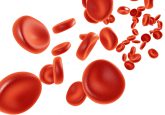John Hopkins University strikes deal with Advanced Cell Diagnostics

Sidney Kimmel Comprehensive Cancer Center at John Hopkins University is to use technology developed by Advanced Cell Diagnostics for the validation of novel biomarkers in cancer therapy.
Advanced Cell Diagnostics (ACD), based in Hayward (CA, USA) has entered into an agreement with John Hopkins University, on behalf of its Sidney Kimmel Comprehensive Cancer Center, in Baltimore (MD, USA), to use ACD’s RNAscope® technology for the establishment of novel biomarkers and drug targets for cancer immunotherapy.
ACD specializes in the field of molecular pathology; developing cell- and tissue-based diagnostic tests for personalized medicine. ACD’s RNAscope technology represents the first automated multiplex RNA in situ hybridization platform, and is capable of providing single-cell gene expression information, enabling both molecular and histopathological analysis of tissue.
According to a press release from ACD, the RNAscope technology is envisaged to help facilitate research, carried out at the John Hopkins Cancer Center, in the area of cancer immunotherapy, through the identification and validation of biomarkers that may successfully guide the development of novel immunotherapeutics.
“The complex interplay between cancer cells and the immune system in the tumor microenvironment matches perfectly with RNAscope’s capability of single molecule sensitivity and single cell resolution, which can help pinpoint which cell is talking to which other cell,” explained Yuling Luo, Founder, President and Chief Executive Officer of ACD. Luo added, “That knowledge will be essential for selecting optimal targets for drug development and predicting which patient will benefit from it.”
Source: Advanced Cell Diagnostics initiates agreement to study biomarkers for cancer immunotherapy.





